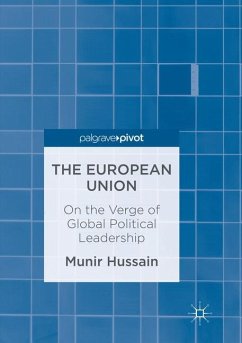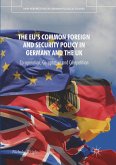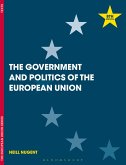This book outlines the foreign and security policy of the European Union as envisaged under the Common Foreign and Security Policy (CFSP). Since establishing the CFSP in the 1990s, the European Union (EU) has showed its enthusiasm for global leadership, empowering European citizenship, and developing its international standing as an economic and political supranational organization. In particular, the book examines the EU's peacekeeping and conflict resolution dynamics in order to analyze the political and security dimensions of the EU.
It argues that, due to the loose collective foreign policy and inter-bloc dilemmas, the EU has failed to perform as an actor of substance in international politics. However, at the regional level, the EU's peacekeeping efforts have enjoyed considerable success. The book further explains the dynamics of successful (regional) and unsuccessful (extra-regional) peacekeeping and conflict resolution efforts on the part of the EU with the help of acase study. The case study assesses two key hypotheses: that the stronger an EU member state's collective Europeanization approach is, the higher the success of the EU is in inter-bloc disputes; and that the weaker an EU member state's execution of the CFSP on international disputes is, the less successful the EU is in the context of international peacekeeping.
It argues that, due to the loose collective foreign policy and inter-bloc dilemmas, the EU has failed to perform as an actor of substance in international politics. However, at the regional level, the EU's peacekeeping efforts have enjoyed considerable success. The book further explains the dynamics of successful (regional) and unsuccessful (extra-regional) peacekeeping and conflict resolution efforts on the part of the EU with the help of acase study. The case study assesses two key hypotheses: that the stronger an EU member state's collective Europeanization approach is, the higher the success of the EU is in inter-bloc disputes; and that the weaker an EU member state's execution of the CFSP on international disputes is, the less successful the EU is in the context of international peacekeeping.








